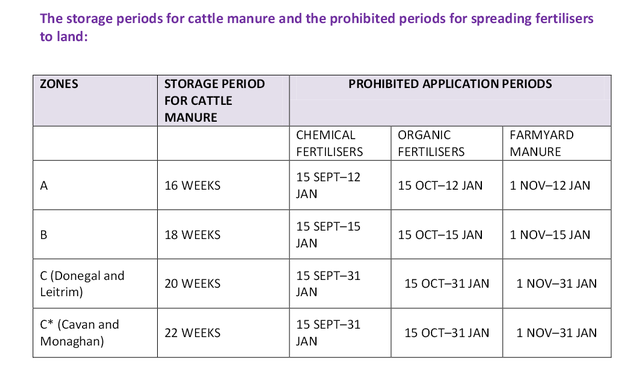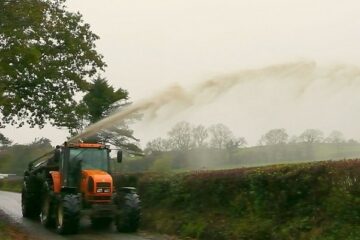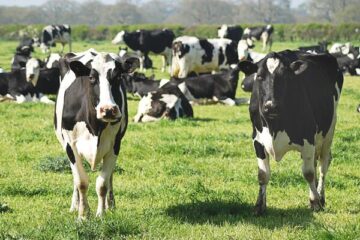From this week farmers across most of the country will be allowed to spread slurry once again.
It comes as the number of farmers being caught illegally spreading slurry during the closed period has fallen considerably in recent years, according to data from the Department of Agriculture.
There are times of the year when farmers must not spread any fertiliser at all on their land, either organic or chemical.
These prohibited spreading periods usually extend from mid-October through to mid-January depending on the area of the country.
The restrictions are in place as research has shown that prohibited periods are necessary to prevent nutrient loss to water during the most environmentally risky time of the year.
The laws which were brought in under the Nitrates Directive have been a cause of anger amongst the farming community.
‘Calender farming’ as it’s come to be known by farmers is a bi-annual annoyance for them. Farmers argue that often the weather can be more suitable for slurry spreading within the closed period.
Farmers themselves say they are the best judges of when slurry should be spread and stress that the majority of farmers do not knowingly damage the environment.


Under EU Cross Compliance requirements Department of Agriculture applies penalties where a non-compliance is determined in the case of slurry spreading during inspections or as a result of Cross Reports received by the Department.
The data below detail the number of penalty cases, for the years 2013 to 2016*, as a result of non-compliances arising from inspections carried out by DAFM or from Cross Reports received from Local Authorities.

*The 2016 figure may not represent the final position and may be subject to change as 2016 inspections continue to be processed to finalisation. In addition, further Cross Reports from Local Authorities, in respect of 2016 are likely to be received in 2017.
Local Authorities are the bodies which carry primary responsibility for implementing the Regulation and may in this regard visit farms when undertaking their responsibilities. A person may be prosecuted for breaches of the Regulations.
Farmers can also incur severe penalties in their farm payments should they be caught spreading slurry during the closed period.



